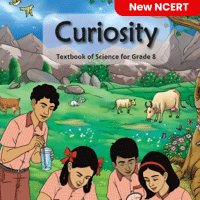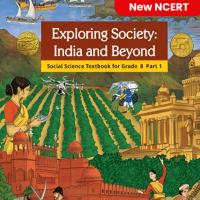Class 8 Exam > Class 8 Questions > What time does then refer to?a)Morningb)After...
Start Learning for Free
What time does 'then' refer to?
- a)Morning
- b)Afternoon
- c)Evening
- d)Night
Correct answer is option 'C'. Can you explain this answer?
Verified Answer
What time does then refer to?a)Morningb)Afternoonc)Eveningd)NightCorre...
The use of the word 'then' suggests a shift in time from the morning described earlier in the poem to the evening when the speaker says softly to themselves.
Most Upvoted Answer
What time does then refer to?a)Morningb)Afternoonc)Eveningd)NightCorre...
Explanation:
Then can refer to different times depending on the context in which it is used. In this particular question, the correct answer is option 'C' which refers to the evening. Let's explore why this is the correct answer.
Context:
The context of the question is not provided, but we can assume that it is referring to a general time frame when the word "then" is commonly used.
Definition:
"Then" is an adverb that can indicate a specific time or a sequence of events. It is often used to refer to a time that follows or comes after another time or event.
Explanation:
In the given options, "morning" refers to the early part of the day, usually from sunrise until noon. "Afternoon" refers to the middle part of the day, usually from noon until around 5 or 6 pm. "Evening" refers to the time after sunset until bedtime, typically starting around 6 or 7 pm. "Night" refers to the period of darkness when people typically sleep.
When we consider the common usage of "then," it is often used to refer to events or actions that occur after a certain point in time. Evening is a time of day that comes after the afternoon and before the night. Therefore, if someone says "I will see you then," they are likely referring to meeting or seeing you in the evening.
Conclusion:
In conclusion, the word "then" can refer to various times depending on the context, but in this specific question, the correct answer is option 'C' which refers to the evening. It is important to consider the context and usage of the word to determine the appropriate time it is referring to.
Then can refer to different times depending on the context in which it is used. In this particular question, the correct answer is option 'C' which refers to the evening. Let's explore why this is the correct answer.
Context:
The context of the question is not provided, but we can assume that it is referring to a general time frame when the word "then" is commonly used.
Definition:
"Then" is an adverb that can indicate a specific time or a sequence of events. It is often used to refer to a time that follows or comes after another time or event.
Explanation:
In the given options, "morning" refers to the early part of the day, usually from sunrise until noon. "Afternoon" refers to the middle part of the day, usually from noon until around 5 or 6 pm. "Evening" refers to the time after sunset until bedtime, typically starting around 6 or 7 pm. "Night" refers to the period of darkness when people typically sleep.
When we consider the common usage of "then," it is often used to refer to events or actions that occur after a certain point in time. Evening is a time of day that comes after the afternoon and before the night. Therefore, if someone says "I will see you then," they are likely referring to meeting or seeing you in the evening.
Conclusion:
In conclusion, the word "then" can refer to various times depending on the context, but in this specific question, the correct answer is option 'C' which refers to the evening. It is important to consider the context and usage of the word to determine the appropriate time it is referring to.

|
Explore Courses for Class 8 exam
|

|
Question Description
What time does then refer to?a)Morningb)Afternoonc)Eveningd)NightCorrect answer is option 'C'. Can you explain this answer? for Class 8 2025 is part of Class 8 preparation. The Question and answers have been prepared according to the Class 8 exam syllabus. Information about What time does then refer to?a)Morningb)Afternoonc)Eveningd)NightCorrect answer is option 'C'. Can you explain this answer? covers all topics & solutions for Class 8 2025 Exam. Find important definitions, questions, meanings, examples, exercises and tests below for What time does then refer to?a)Morningb)Afternoonc)Eveningd)NightCorrect answer is option 'C'. Can you explain this answer?.
What time does then refer to?a)Morningb)Afternoonc)Eveningd)NightCorrect answer is option 'C'. Can you explain this answer? for Class 8 2025 is part of Class 8 preparation. The Question and answers have been prepared according to the Class 8 exam syllabus. Information about What time does then refer to?a)Morningb)Afternoonc)Eveningd)NightCorrect answer is option 'C'. Can you explain this answer? covers all topics & solutions for Class 8 2025 Exam. Find important definitions, questions, meanings, examples, exercises and tests below for What time does then refer to?a)Morningb)Afternoonc)Eveningd)NightCorrect answer is option 'C'. Can you explain this answer?.
Solutions for What time does then refer to?a)Morningb)Afternoonc)Eveningd)NightCorrect answer is option 'C'. Can you explain this answer? in English & in Hindi are available as part of our courses for Class 8.
Download more important topics, notes, lectures and mock test series for Class 8 Exam by signing up for free.
Here you can find the meaning of What time does then refer to?a)Morningb)Afternoonc)Eveningd)NightCorrect answer is option 'C'. Can you explain this answer? defined & explained in the simplest way possible. Besides giving the explanation of
What time does then refer to?a)Morningb)Afternoonc)Eveningd)NightCorrect answer is option 'C'. Can you explain this answer?, a detailed solution for What time does then refer to?a)Morningb)Afternoonc)Eveningd)NightCorrect answer is option 'C'. Can you explain this answer? has been provided alongside types of What time does then refer to?a)Morningb)Afternoonc)Eveningd)NightCorrect answer is option 'C'. Can you explain this answer? theory, EduRev gives you an
ample number of questions to practice What time does then refer to?a)Morningb)Afternoonc)Eveningd)NightCorrect answer is option 'C'. Can you explain this answer? tests, examples and also practice Class 8 tests.

|
Explore Courses for Class 8 exam
|

|
Signup for Free!
Signup to see your scores go up within 7 days! Learn & Practice with 1000+ FREE Notes, Videos & Tests.























